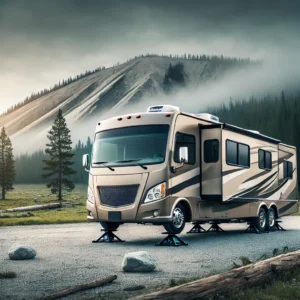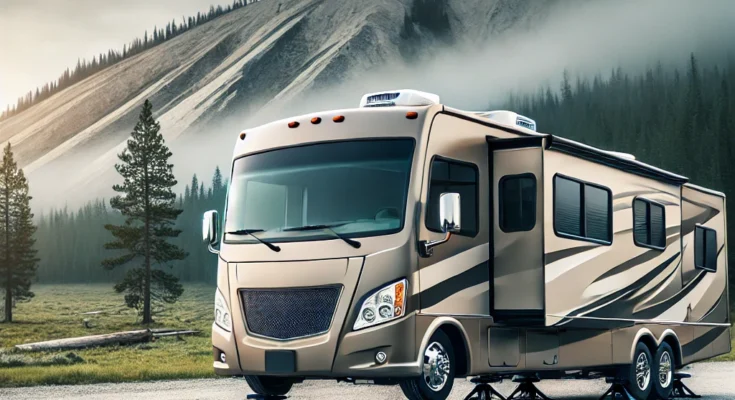can you feel earthquakes in an rv better Can RVs survive an earthquake? Discover how RVs respond to seismic activity, their safety during earthquakes, and tips for staying protected
Recreational Vehicles (RVs) are versatile homes-on-wheels, loved for their ability to take you anywhere. But when it comes to natural disasters like earthquakes, many RV owners wonder: Can RVs survive an earthquake? Let’s explore this topic, understand how earthquakes affect RVs, and offer tips to stay safe during a seismic event.

Understanding Earthquakes: How They Impact RVs
What Happens During an Earthquake?
Earthquakes occur when tectonic plates beneath the Earth’s surface shift, causing the ground to shake. The intensity can vary, from minor tremors to severe quakes that disrupt structures.
How Do RVs React to Earthquakes?
RVs, being lighter and more flexible than traditional homes, can feel the effects of even small tremors more intensely. Here’s why:
- Mobility: RVs are designed to move, which means they’re not anchored to the ground like a house.
- Suspension System: The wheels and suspension of an RV can amplify the sensation of ground movement.
- Weight Distribution: If the RV is not evenly balanced, it may sway or tip slightly during an earthquake.
Can RVs Survive an Earthquake?
The short answer is yes, RVs can survive most earthquakes, especially smaller ones. However, the outcome depends on several factors:
- Earthquake Magnitude: A mild quake may only cause slight rocking, but a stronger earthquake could potentially damage the RV’s structure or topple it over if parked on uneven ground.
- RV Build Quality: High-quality RVs with sturdy construction are more likely to withstand shaking without significant damage.
- Parking Location: Parking your RV on flat, stable ground reduces the risk of tipping. Avoid parking near trees, buildings, or power lines that could fall during a quake.
Why Do People Feel Earthquakes Better in RVs?
RVs are like sensitive seismic detectors because of their mobility and lightweight nature. When the ground shakes:
- The suspension system amplifies vibrations.
- Lightweight interiors, like cupboards and shelves, rattle easily, making the quake more noticeable.
- RVs often lack the heavy foundations of traditional homes, allowing them to move freely with the tremors.
Staying Safe During an Earthquake in an RV
Before an Earthquake:
- Park Smart: Always park on stable, flat ground, away from hazards like cliffs or heavy objects.
- Secure Your Belongings: Use straps or non-slip mats to keep items in place. Avoid overloading cabinets.
- Prepare an Emergency Kit: Include water, non-perishable food, a flashlight, batteries, a first-aid kit, and important documents.
During an Earthquake:
- Stay Inside: While your instinct might be to run outside, it’s often safer to stay put. Lie low on the floor to avoid falling objects.
- Hold On: Brace yourself against a sturdy surface, like a wall or piece of furniture, to minimize injury.
- Avoid Windows: Shattering glass poses a serious risk.
After an Earthquake:
- Inspect Your RV: Check for damage to the frame, tires, and interior.
- Watch for Hazards: Be alert for gas leaks, downed power lines, or unstable ground.
- Relocate if Needed: If your RV is parked in a dangerous area, move to a safer location once it’s safe to do so.
The Benefits of RVs During Earthquakes
While earthquakes can pose challenges, RVs also have some advantages in such situations:
- Mobility: If an area becomes unsafe, you can drive your RV to a safer location.
- Self-Sufficiency: Many RVs are equipped with water tanks, generators, and basic amenities, making them ideal for short-term survival.
- Flexibility: Unlike traditional homes, RVs don’t rely on fixed infrastructure, reducing the risk of structural damage.
RVs vs. Traditional Homes in Earthquakes
| Feature | RVs | Traditional Homes |
|---|---|---|
| Mobility | Can relocate to avoid hazards | Fixed, cannot move |
| Damage Risk | May tip or shake, but less collapse | Higher risk of structural collapse |
| Survivability | Dependent on parking location | Dependent on building strength |
| Post-Quake Recovery | Easy to relocate | Requires rebuilding if damaged |
How to Prepare Your RV for Earthquakes
To increase the chances of your RV surviving an earthquake, follow these tips:
- Invest in Stabilizers: Wheel chocks and stabilizer jacks help reduce rocking during tremors.
- Use Safety Straps: Secure appliances, furniture, and loose items to prevent them from shifting or falling.
- Install a Seismic Detector: These devices alert you to early tremors, giving you more time to react.
- Practice Emergency Drills: Know evacuation routes and rehearse what to do during an earthquake.
Real-Life Stories: RVs in Earthquakes
Many RV owners have shared stories of experiencing earthquakes while on the road. Here are a few insights:
- Small Tremors: Most reported feeling their RV shake slightly but experienced no damage.
- Major Quakes: In stronger earthquakes, RVs parked on uneven ground sometimes tipped but remained structurally intact.
- Quick Relocation: After an earthquake, the ability to move to a safer location was a significant advantage.
FAQs: RVs and Earthquakes
1. Can an RV flip over during an earthquake?
Yes, but it’s rare. Parking on flat ground and using stabilizers reduces the risk.
2. Are motorhomes safer than trailers during earthquakes?
Motorhomes tend to be heavier and more stable than trailers, making them slightly safer.
3. What’s the best type of RV for earthquake-prone areas?
Look for RVs with a lower center of gravity and robust construction, such as Class C motorhomes.
Conclusion
So, can RVs survive an earthquake? The answer largely depends on preparation and parking location. While RVs are more susceptible to shaking than traditional homes, their mobility and self-sufficiency make them a unique asset during seismic events. By taking precautions and staying informed, RV owners can confidently navigate earthquake-prone regions.


